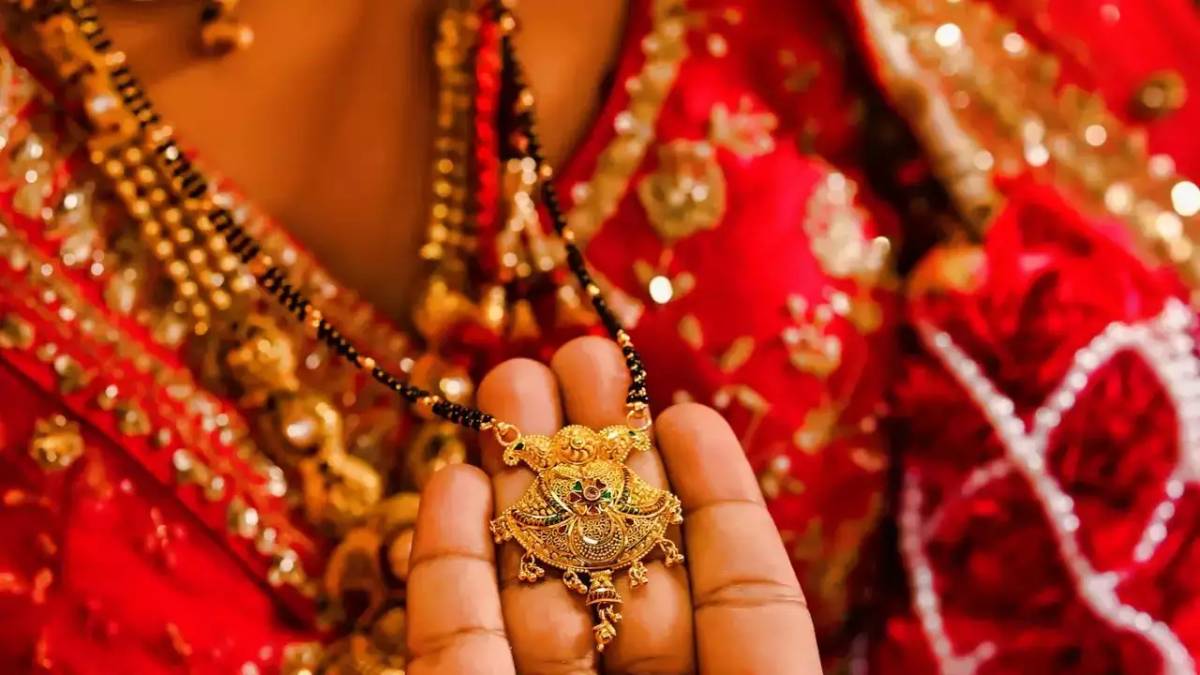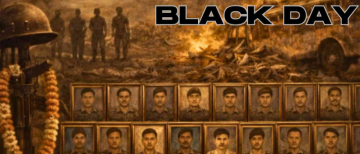Imagine walking into a courtroom seeking justice, only to be told that your marital worth hinges on a piece of jewelry and a red dot on your forehead. Sounds absurd? Welcome to the Indian judiciary, where some judges seem to moonlight as cultural gatekeepers.
A Pune district court recently became the epicenter of controversy when a judge, tasked with mediating a domestic violence dispute, took it upon himself to school a woman on marital decorum. The judge, in a moment of unsolicited wisdom, remarked, “I can see that you are not wearing a mangalsutra and bindi. If you don’t behave like a married woman, why would your husband show any interest in you?”
The exchange was made public by Pune-based disputes lawyer Ankur R. Jahagirdar, who took to LinkedIn to share the jaw-dropping incident. His post quickly went viral, drawing widespread outrage and raising critical questions about gender bias in India’s legal system.
Yes, you read that right. In the grand pursuit of justice, a woman's marital status was put on trial—by her own fashion choices.

A Courtroom or a Moral Science Class?
The incident, which was intended to be a mediation session, quickly spiraled into what sounded more like a lecture on how women should uphold traditional marital values. The woman in question had been separated from her husband, but instead of addressing the core issues of the domestic violence case, the judge seemingly chose to focus on cultural symbolism.
If this sounds like an isolated incident, think again. The Indian judicial system has had a history of courts weighing in on women's clothing and adherence to traditional markers of marriage.
-
In 2022, the Madras High Court granted a man divorce on the grounds that his wife’s refusal to wear a mangalsutra amounted to “mental cruelty of the highest order.”
-
In 2020, a ruling by the Gauhati High Court similarly sparked outrage, leading women to post pictures on social media without sindoor or mangalsutras in protest.
Clearly, the judiciary isn’t just about legal interpretations anymore—it's doubling up as an enforcer of cultural norms.

Mediation or Moral Policing?
Jahagirdar’s post did not stop at the Pune incident. He shared yet another disturbing interaction, this time involving a sessions judge who seemed to be offering relationship advice rather than dispensing justice. When a woman sought fair maintenance from her estranged husband, the judge dismissed her demands, arguing that women should be more "flexible."
He elaborated with a baffling analogy:
“If a woman is earning well, she will always look for a husband who earns more than her and will never settle for someone who earns less. However, if a man who earns well is looking to marry, he might even marry a maid who washes utensils in his house. Look how flexible men are. You should also show some flexibility. Don’t be so rigid.”
Let that sink in. A sitting judge implied that women should compromise their financial security and legal rights because, well, men are supposedly magnanimous enough to marry women of lower economic standing.
Flexibility, in this context, wasn’t about equitable negotiation but about women adjusting (read: compromising) their expectations. The idea that women must adhere to social norms while men may exercise free will isn’t just outdated—it’s dangerous.
The First Rule of Patriarchy Club? Don’t Talk About It
Jahagirdar’s account reveals a grim reality – these remarks are merely the “tip of the iceberg.” They are reflective of an ingrained societal bias that sneaks into judicial proceedings under the guise of "traditional wisdom."
"A lot more happens in sessions court that would shock the conscience of any rational person," he wrote.
He points out that society’s ‘baseline tolerance’ for patriarchy enables these comments to pass without significant repercussions. “The first rule of the patriarchy club is you do not talk about the patriarchy club,” he wrote.
His frustration was clear—not just at the remarks themselves but at the lack of recourse against them. Judges making such comments rarely face consequences, leaving litigants and lawyers with little power to challenge the underlying biases.
लगभग 45 साल पहले.
#withoutsymbolsOfMarriage
वो कहते है चूड़ी, सिंदूर न पहनने से तलाक हो जाता हैं. #AgainstPatriarchy pic.twitter.com/TerGg8QlBD— Geeta Yatharth (@GYatharth) June 30, 2020
The Bigger Problem: When the Law Becomes the Enforcer of Tradition
The issue isn't about a single comment or even one particular judge—it's about a systemic problem where personal beliefs seep into judicial reasoning. While courts are meant to be neutral spaces where the rule of law prevails, instances like these reveal how deeply personal and cultural biases influence proceedings.
Why This Matters
-
Erosion of Trust in the Judiciary – When courts reinforce stereotypes instead of upholding justice, women seeking protection may hesitate to turn to the legal system.
-
Setting Dangerous Precedents – If a woman’s refusal to wear a mangalsutra is considered ‘mental cruelty,’ what stops similar judgments from being passed on women who challenge other gender norms?
-
Misuse of Mediation – Instead of serving as a neutral conflict-resolution mechanism, mediation often turns into a pressure tactic to uphold traditional family structures.
Married for 25 years. Did not need any bindi, sindoor, mangalsutra or chuda to last these years!! #withoutsymbolsofmarriage
Love and relationships are not dependent on symbols. Does the husband wear any symbols? If he needs none why should it be mandatory for the wife? pic.twitter.com/EPy7FWV4T0— Srinjani Kajaria🏃🏻♀️💪📸🍱🎶🧑🍳 (@SrinjaniKajaria) July 2, 2020
What This Means for Women Seeking Justice
These incidents underline a sobering reality – legal bias exists, and it thrives in spaces meant to uphold justice. When judges prioritize cultural expectations over constitutional rights, women are left battling not just their personal disputes but also the very system meant to protect them.
-
Mediation, or Moral Policing? Courts are increasingly using mediation as a means of resolving disputes. While mediation can be effective, it requires trained, impartial experts who focus on legal frameworks rather than personal ideologies.
-
Who Holds the Judges Accountable? When such remarks are made in court, what recourse do litigants have? As Jahagirdar pointed out, there is little mechanism to challenge such biases without consequences.
-
Justice Beyond Symbols: Should a woman’s right to dignity and independence be tied to whether or not she chooses to wear sindoor or a mangalsutra?
ये है प्रिया यश #WithoutSymbolsOfMarriage pic.twitter.com/bkuJ3jB5B0— Advocate Priyanka Shukla (priya shukla) (@priyankaaap23) June 30, 2020
A Call to Action: Where Do We Go from Here?
If the legal system is to serve all citizens fairly, mediation sessions and court proceedings must be led by trained professionals who understand both the law and the importance of impartiality.
-
Mandatory Gender Sensitization for Judges – Personal biases must be kept out of judicial decision-making. Training programs can help ensure that legal professionals focus on the law, not cultural expectations.
-
Stronger Accountability Mechanisms – There should be clear avenues for litigants and lawyers to report biased remarks without fear of repercussions.
-
Public Awareness and Advocacy – The more these cases are highlighted, the harder it will be for such biases to remain unchallenged.
-
Support legal reforms that prioritize rights over regressive traditions.
Justice isn’t about whether a woman wears a mangalsutra or a bindi—it’s about whether her rights are upheld in a courtroom that treats her as an equal. It’s high time our legal system caught up with that basic principle.
Women seeking justice don’t need lectures on how to keep their husbands interested. They need a judiciary that upholds the law, not outdated customs. It’s time to rewrite the rules of the patriarchy club – or better yet, dismantle it entirely.
With inputs from agencies
Image Source: Multiple agencies
© Copyright 2025. All Rights Reserved Powered by Vygr Media.
Views expressed in the above piece are personal and solely those of the author. They do not necessarily reflect Vygr’s views.


























